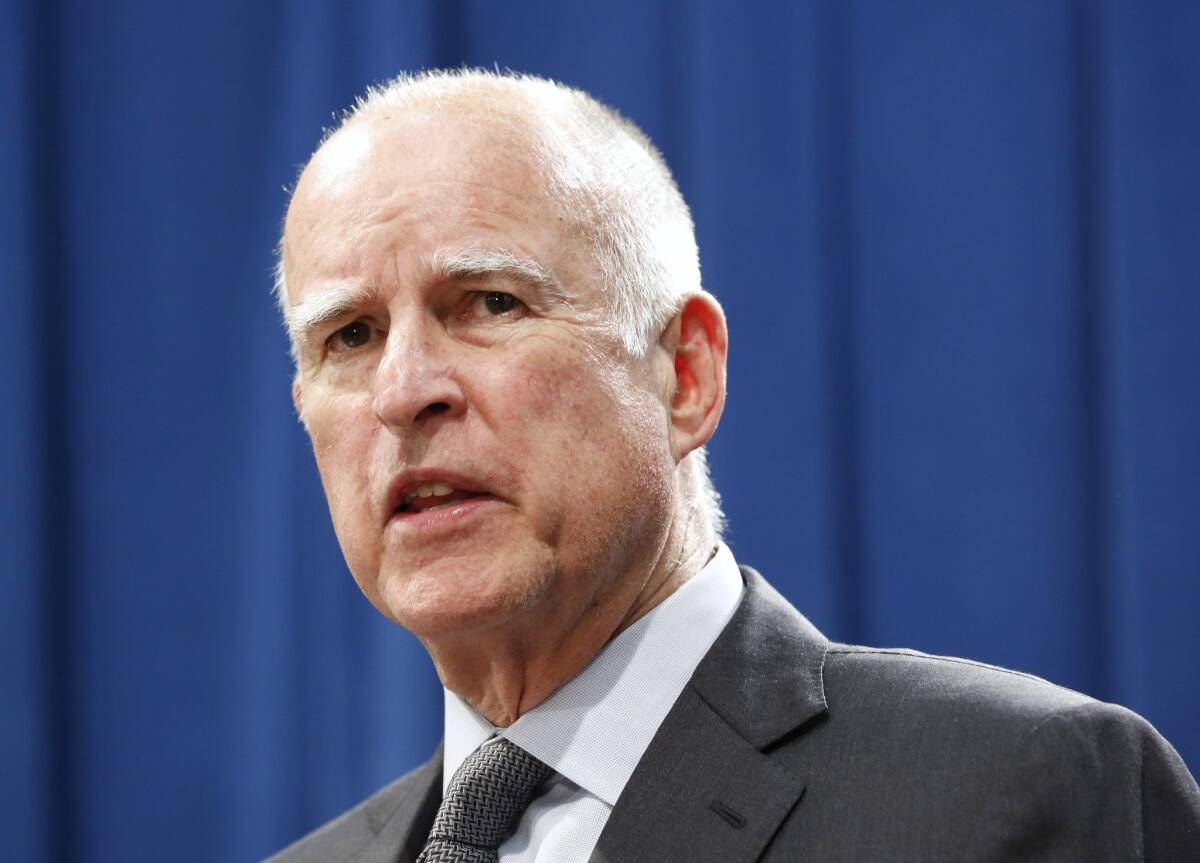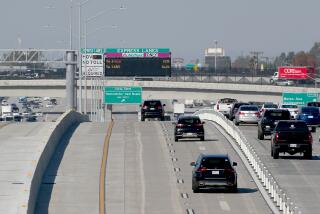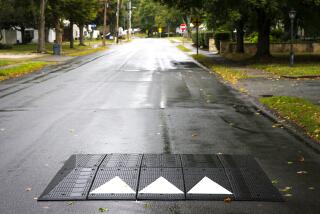State lawmakers approve traffic relief and stricter penalties for sex offenders

State lawmakers sent Gov. Jerry Brown several measures after approving them Thursday.
Los Angeles County motorists would be able to use carpool lanes on some local freeways during off-peak hours under a proposal state lawmakers sent to Gov. Jerry Brown on Thursday.
Another measure en route to the governor’s desk would increase penalties for sex offenders who remove their court-ordered GPS tracking devices.
The bid to relax carpool-lane rules was proposed as a way to reduce the congestion that plagues L.A.-area freeways even after the daily commutes end.
It would open high-occupancy vehicle lanes to solo drivers during off-peak travel hours on the 134 Freeway from North Hollywood to Pasadena, and on the 210 Freeway from Pasadena to Glendora. The state Department of Transportation also could consider opening those lanes on other freeways.
Assemblyman Mike Gatto (D-Glendale), author of the bill, said Northern California carpool lanes successfully allow off-peak access.
Gatto described the frustration many Southern Californians have experienced: “A late-night accident or mysterious slowing clogs the right-most freeway lanes, while the carpool lane sits empty.”
He said the current policy “doesn’t make much sense.”
If signed by Brown, the measure would take effect July 1, 2016. However, the governor vetoed a similar bill in 2013, writing then that “carpool lanes are especially important in Los Angeles County to reduce pollution and maximize use of freeways.”
Gatto said an analysis by legislative staff noted that a Caltrans study conducted since the veto found that, for both freeways, “HOV lane usage drops substantially after the 6 p.m. hour.”
The sex offender bill that also went to Brown would classify as a felony the willful disabling of GPS tracking devices by those on parole or under community supervision.
The offense would carry a prison sentence of up to three years and would apply to those previously convicted of rape, lewd or lascivious acts against children, sodomy, oral copulation or continuous sexual abuse of a child.
“When a rapist or child molester cuts off his GPS device and evades the law, the state has been put on notice that others are at great risk,” said Sen. Patricia Bates (R-Laguna Niguel), the bill’s author.
She cited two cases in which sex offenders who had been assigned GPS devices evaded the tracking units and are now accused of killing multiple women.
Another bill given final legislative approval would allow felony charges for those convicted of possessing “date rape” drugs, including Rohypnol and GHB, with intent to commit sexual assault.
The bill would plug a loophole created by the passage last year of Proposition 47, which reclassified many crimes from felonies to misdemeanors.
“I firmly believe that voters in California did not intend to weaken sexual assault statutes,” said the bill’s author, Sen. Cathleen Galgiani (D-Stockton).
patrick.mcgreevy@latimes.com
Twitter: @mcgreevy99
More to Read
Start your day right
Sign up for Essential California for news, features and recommendations from the L.A. Times and beyond in your inbox six days a week.
You may occasionally receive promotional content from the Los Angeles Times.







